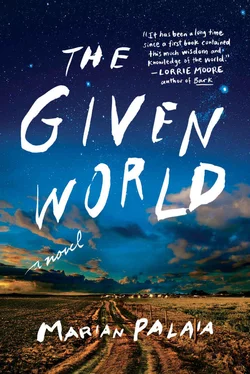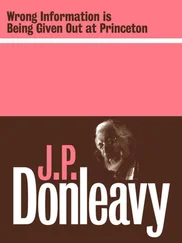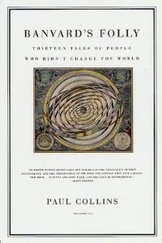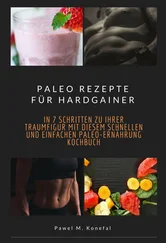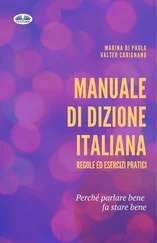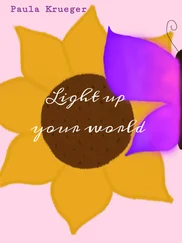Finally, I hear, “I don’t know what—” The line goes bleep, then dead. I do not call back, though I should, to say I am sorry for what I did, for who I am, for calling, for reminding him, for asking for something I don’t deserve: for someone to want me. For a reason to one day, perhaps, in this lifetime even, recross the ocean. Selfish as that reason might be. Crazy as it might be to believe, even for a little while, that it would do.
I think about calling home. My real home. I think about calling.
• • •
My pool-playing buddy Clive gets arrested; it is unclear exactly what for, but suddenly his taxi girls have taken up residence in our bar. The cops beat him up and he spends two weeks in jail with a fractured cheekbone, a badly stitched flap of skin covering it, and a dislocated shoulder. When he gets out, he is wearing filthy bandages, a sling made of an old ammo belt, and shoes. June has already been deported back to Thailand. Their bar is shuttered. Clive has no money — as they have searched and taken what they could find, frozen his bank accounts — so we take up a collection and gather 350 US dollars between us. He has two days; then he’s on the bus to Cambodia.
When we give him the money, he cries — blubbers, really, like they say.
Ian asks first, “What’s the plan, mate?”
“Got none.” One-handed, Clive clenches the edge of the bar like it’s a high window ledge and he is outside, suspended over a very long drop. He bends his elbow and leans in to put his forehead against the wood, in a motion that could be mistaken for prayer. We wait, grouped in a loose semicircle around the pool table, while he gathers himself. He turns and eyes the felt longingly. Then he looks at me. “Learn to snooker, girl. Can you do that? At least the ones who’ve got it coming.”
“I’ll try, Clive.”
“Might learn to like it.”
“Never know.”
Gentleman that he is, he shouts us all a round before he goes. We write our real names on beer coasters so he can send mail to us poste restante , knowing it will never happen, knowing in a few months he won’t be able to match but a few of the names to faces, but it is what we do: send a piece of ourselves with him. He leaves, his new shoes somehow broken in already, molded to his feet like black wax. His shoes are what we look at as he ambles away, how they carry him off, ungainly and unbelievably gone.
A couple of nights after Clive leaves, Ian and I get a few beers in us and decide to break into his bar. Luc, the Froggy that Phượng has her eye on for me, comes with us. We’re presumably going just to check it out, and then Ian says he thinks Clive mentioned a stash somewhere, maybe in the storeroom, but he doesn’t know of what or exactly where. Could be money or hash or some other kind of drugs. “Could be girls,” Ian says, not sounding like he’s kidding.
We hail three cyclos. The young drivers race halfheartedly, figuring out quickly that we are not tourists and don’t want anything but a ride. There is no rain tonight and instead just half the moon. The river reflects it, rainbowy with diesel, smelling like exhaustion and fish. We pay the drivers at the corner nearest the bar and wait for them to drive off before we duck into the entryway, where Luc goes to work on the cheap Chinese padlock. It’s big, like the one at the Lotus, but Luc demonstrates his wizardry by picking it in about twenty seconds flat. “Voilà,” he says, a bit theatrically.
Ian makes it through the door without mishap, but Luc and I sort of fall through it, into a snarl of overturned bar stools and sundry wreckage. “Ô la vache, crap, sheet, mer-duh,” he says as we untangle ourselves. I get a bit of elbow in the ribs — deserved retribution, I suppose, for taking him down with me — but when he gets to his feet, he reaches for me, to help me up. It is dark but for a bit of that half-moon filtering in through a high window. I have a small flashlight with me and switch it on. The bar looks like the Ia Drang Valley after the First Cav got done with it. Nothing that should be standing is; all of the pictures have been torn off the walls; June’s collection of porcelain figurines and other knickknacks is smashed and scattered. There is broken glass, like shrapnel, on every horizontal surface. It scrapes beneath our feet as we make our way to the storeroom door. I can’t believe Luc and I didn’t get cut when we went down, but somehow we hit a clear patch.
“Lucky,” I whisper. Neither of them looks at me or asks what on earth I am talking about.
Ian opens the door, and incredibly it appears untouched. It is almost empty, and meticulous, as June would have kept it. There are several bottles, unopened, of the local whiskey; a single case each of 333 and Tiger beer; and, on the top shelf, a few gallon jars of snake wine, complete with snakes, coiled inside as if they are sleeping off a big night. A hammock stretches across the back wall, attached to rebar-fashioned hooks on either side. I picture Clive in here on a hot afternoon, fanning himself with the day’s edition of the Saigon Times , a beer on the floor within easy reach of an outstretched arm.
Ian starts palming the walls between the shelves, looking for a secret compartment or a trapdoor. I hold the flashlight for him while Luc sits on the floor, smokes a cigarette, and watches us. “You think you will find some dop?”
Ian laughs. “What ees zees dop?”
“You know,” Luc says. “Dop. Smok. Hashish.”
“Maybe,” Ian says.
After he’s gone over every inch of wall, he borrows my flashlight to inspect the wooden floor planks. He finds a tiny chunk of hash in a crack between two of them, and another one, and another, like a trail of bread crumbs leading out of a forest. We are stunned to find anything at all and wonder how it got, and stayed, here. Luc keeps saying “Incroyable,” as if he is saying a prayer. Ian finds maybe two grams total and divides it up among us.
“Let’s get out of here,” he says, and Luc gets up from the floor. They start for the exit, but I hang behind.
“I’ll see you guys later.”
Ian says, “Share what you find?”
“Sure.”
Luc says, “Watch out the gendarmes.”
“The gendarmes got nothing on me,” I say.
My eyes have adjusted to the darkness, so I assemble the few bar stools that are still intact and line them up where they belong. Clear a space around the pool table and find a broom. It is while I am sweeping up the glass that I see a large patch of dried blood on the floor. I figure Clive caught his cheek on the corner of the table somehow in the fray and lay there for a time while it bled, watching his Vietnam life pass before his eyes.
I am taking stock of the pool balls caught in the table’s net pockets, seeing if they are all there in case someone should happen by at three in the morning looking for a game, when the door opens and Luc slides through it. He throws the bolt on the inside and makes his way to me and my broom. “Why you still look? Why you don’t stop looking?” He takes the broom out of my hands and leans it against the wall. “Now,” he says. He sounds exasperated, a little breathless, like maybe he ran here, but that is highly unlikely. Nobody runs in Saigon.
It is not the most eloquent kiss — not what I would expect from a mouth that offers up words like bites of ripe dragonfruit — but it is a kiss. He actually tastes nothing like fruit of any kind but like cigarettes and cognac and, for some inexplicable reason, butterscotch. I don’t know where to put my hands, and after a minute he puts his on the sides of my face and then pulls tenderly away. He has a pipe, and we smoke some hash. It’s strong so it doesn’t take much to get me stoned. We finish clearing space around the pool table and shoot a couple of games in the near darkness. The smack of the balls as we scatter them across the felt and drop them into the pockets is the only sound, except for an occasional lorry or motorcycle or boat motor in the distance. Saigon is sleeping. So rare.
Читать дальше
